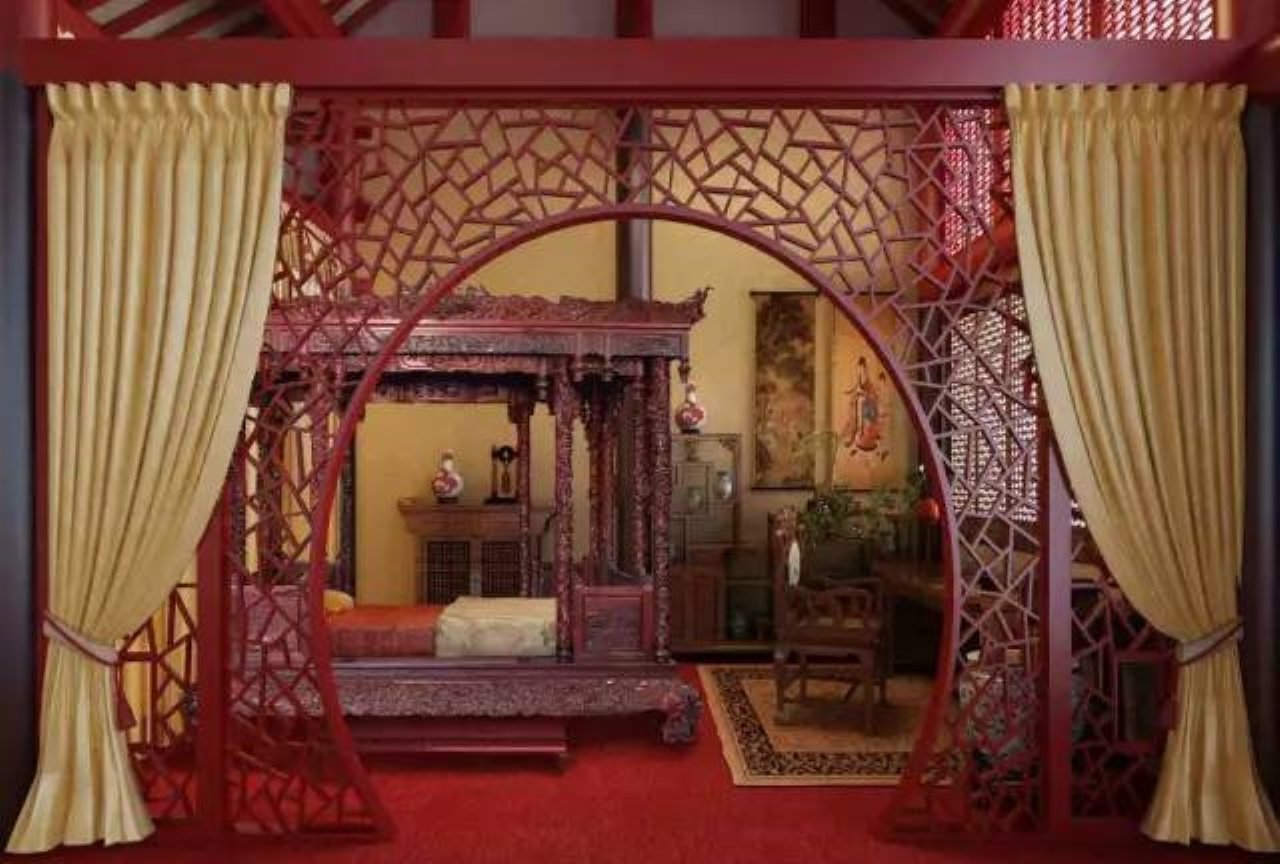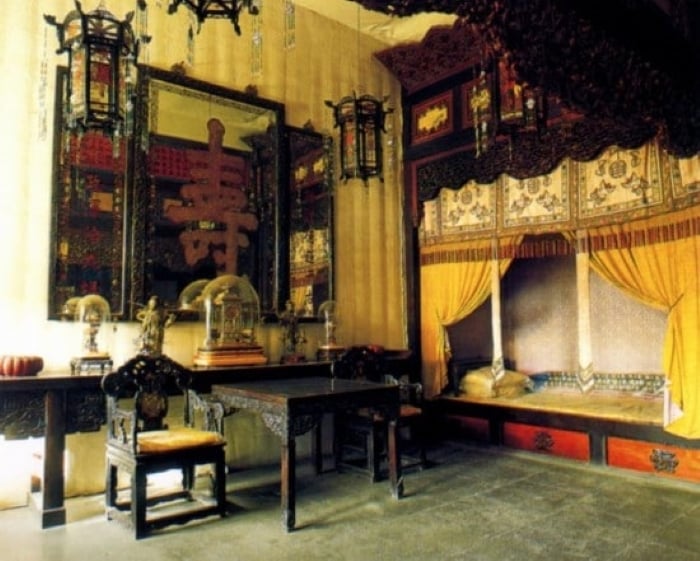Is a Large House Really a Good Thing?
Ancient Feng Shui wisdom states, “A large house with few occupants is a dangerous house.” In other words, a spacious home with too few inhabitants is considered unfavorable from a Feng Shui perspective.
A review of traditional architecture, particularly the bedrooms of emperors, reveals a different approach. Emperor’s bedrooms were often no larger than 10 square meters, and sometimes even smaller. This contrasts with the modern tendency to equate larger spaces with better living.
The old saying, “A large house with few occupants is like an empty house,” captures this idea. Essentially, a large, sparsely populated home is akin to a vacant one.

Smaller rooms require less energy to maintain a comfortable temperature. (Illustrative image)
This concept is quite simple when we consider the principles of air conditioning. In a 10-square-meter room, it takes just half an hour for the air conditioner to cool the space. Moreover, the room remains cool for a significant time after turning off the AC. This is because the small space quickly reaches energy saturation.
In other words, smaller spaces require less energy to maintain a comfortable temperature. Conversely, larger spaces demand more energy.
This principle also applies to the human body. A larger house means more energy expenditure for those who inhabit it.
Therefore, the size of a house should be proportional to the number of its occupants. A larger house necessitates more people, creating a vibrant and bustling atmosphere, which is considered favorable in Feng Shui. A bigger house tends to draw more positive energy or ‘human vitality.’
These theories are well-founded. The energy emitted by the human body is what we refer to as ‘human vitality.’ When a person has to use excessive energy to fill the vast space of a house, it can be detrimental to their health.
As the body expends more energy, physical strength diminishes. This manifests outwardly as fatigue, increased susceptibility to errors, and impaired judgment. Consequently, a string of unfortunate events may follow.
What is the Ideal House Size According to Feng Shui?
In our experience, a bedroom size of around 15 square meters, with 20 square meters as the maximum, is ideal.
Ancient wisdom suggests that sleeping in a room larger than 20 square meters can make it difficult to conceive a child. While this may not be an absolute truth, it holds some validity in a certain context.
This can be explained by the body’s energy expenditure, which may affect reproductive health, similar to how infertile soil prevents plants from bearing fruit.
Feng Shui Principles in Ancient Dwellings
Let’s examine the sleeping quarters of Chinese emperors to better understand this concept. A visit to the Forbidden City in Beijing, specifically the bedrooms of Emperor Yongzheng, reveals that the emperor’s resting space was no larger than that of a commoner, approximately 10 square meters. Moreover, during sleep, two layers of curtains were drawn, further reducing the space, possibly to less than 10 square meters. The key takeaway is that a healthy body is more important than a large room.

Bedrooms of ancient royalty were relatively small. (Illustrative image)
The Forbidden City, the world’s largest imperial palace, spans an impressive 720,000 square meters and boasts 9,000 rooms. Yet, the emperor chose to reside in a modestly sized chamber. This is because an emperor’s physical condition is no different from that of a commoner, and maintaining energy and promoting health and longevity are universal goals.
A visit to the ten largest gardens in Suzhou and the four most famous gardens in Guangdong, China, reveals that despite the immense wealth of their owners, their bedrooms were also modest, typically around 10 square meters.
In contrast, the newly rich tend to favor extravagant and spacious bedrooms, sometimes exceeding 50 square meters. However, they often suffer from various ailments, requiring a constant intake of supplements. Their health deteriorates, and their businesses suffer as a result. This showcases the profound wisdom of our ancestors.
On a deeper level, this aligns with the ancient concepts of karma and destiny. Why? Because ancient wisdom dictates that a person’s destiny is predetermined, subject to change only through exceptional virtue, immense merit, or heinous acts that deplete one’s blessings.
Thus, a person who fails to practice self-restraint and instead indulges in luxury without performing good deeds will eventually deplete their predetermined blessings. What awaits them then is misfortune, such as an early demise or natural disasters.
As the ancient saying goes, “Where there is blessing, there is also calamity, and where there is calamity, there is also blessing.” Enjoying blessings without restraint will inevitably invite calamity.
Therefore, for a person to lead a smooth life, they must consistently perform good deeds and practice restraint in their enjoyment of luxuries. By doing so, they will attract more blessings and live a peaceful life.
The information in this article is for reference only and is not intended as professional advice.
The 4 No-Go Spots to Keep Your Broom in to Ensure Wealth: Sweep Away Bad Luck and Welcome Prosperity
The humble household broom is more than just a cleaning tool; its placement is of utmost importance in the practice of Feng Shui. Superstition dictates that there are certain areas in the home where one must never keep a broom, as doing so could bring about detrimental effects on the homeowner’s fortune and overall well-being.
“The Mystery of the Jackfruit Tree: Why Ancestors Loved and Loathed it”
Mango wood is a precious natural resource, often revered for its beauty and unique characteristics. However, there is a traditional belief that planting mango trees in front of houses is inauspicious. Superstitions aside, this wood has a rich history and is highly sought-after for its durability and aesthetic appeal.





































